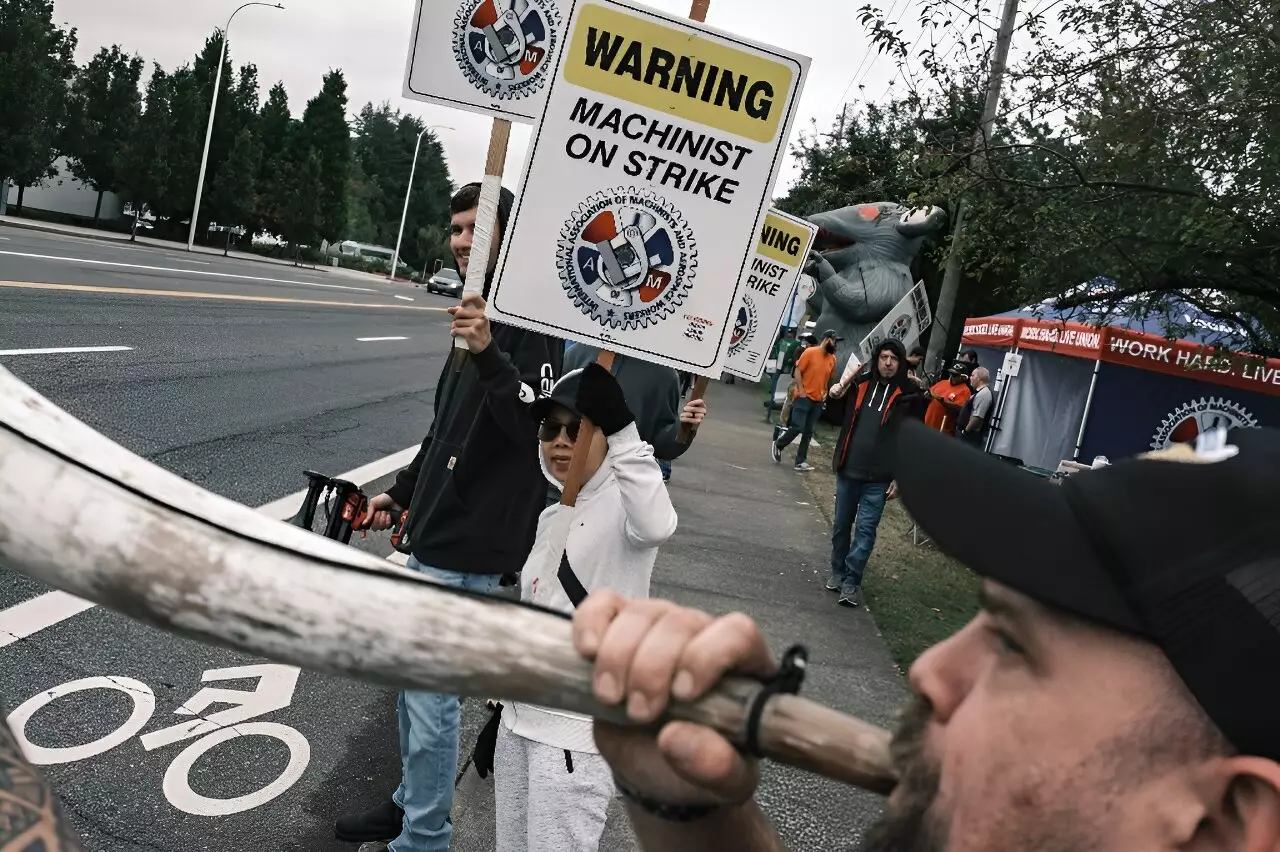In a significant labor dispute, Boeing employees represented by the International Association of Machinists and Aerospace Workers (IAM) have recently commenced a strike impacting approximately 33,000 workers. This strike, which began on September 13, 2023, followed a nearly unanimous rejection of a contract proposal by the workforce. The dissenting voices from the employees highlight their frustrations with the terms offered by Boeing, which they deemed insufficient in addressing critical issues such as pay and benefits. Consequently, their decision to walk out has resulted in a considerable halt in production, particularly affecting the assembly of pivotal aircraft models such as the 737 MAX and the 777.
Negotiations between the IAM and Boeing have been challenging, with the union announcing that discussions have “broken off” without any agreements reached. As of now, there are no scheduled future talks, leaving both parties at an impasse. The IAM expressed a willingness to continue the dialogue, whether directly or through mediation. Boeing, on the other hand, reiterated its commitment to resolving the dispute amicably and engaged in goodwill negotiations. However, despite these intentions, the contentious issues surrounding wages and benefits remain unresolved.
At the heart of the labor unrest is Boeing’s latest proposal, which includes a 30% wage increase for the workers and the reinstatement of an annual bonus. This offer was put forth as the company’s “best and final,” reflecting its willingness to make concessions to some extent. Nevertheless, the IAM’s immediate rejection of this proposal underscores the depth of the workers’ discontent, particularly concerning their pension plans.
A central point of conflict highlighted by the IAM revolves around the unfreezing of the defined benefit pension plan. This issue is particularly significant for many employees who rely on such benefits for their long-term financial security. The IAM has voiced frustration over Boeing’s rigid stance on this matter, accusing the company of avoiding substantive discussions about other crucial topics, such as faster wage progression and additional paid time off.
The IAM’s assertion that deeper conversations were cut short indicates a lack of empathy from Boeing management towards the workers’ needs. The feeling of being unheard can have a profound impact on employee morale, further widening the chasm between the labor force and management.
The Implications of the Strike
The ongoing strike at Boeing poses potential repercussions not only for the company but also for the wider aviation industry. The suspension of production could lead to delays in delivering aircraft, impacting supply chains and financial performance. Furthermore, labor disputes of this magnitude often serve as a bellwether for other industries, possibly igniting a wave of similar actions among workers in different sectors advocating for better terms.
As negotiations remain at a standstill, it is imperative for both Boeing and the IAM to find common ground. The resolution of this dispute will depend on both parties being willing to approach the table with open minds, ready to engage in genuine dialogue to address the workers’ grievances and strive for an equitable agreement. The outcome will significantly shape not just Boeing’s immediate future, but also its long-term relationship with its workforce.

